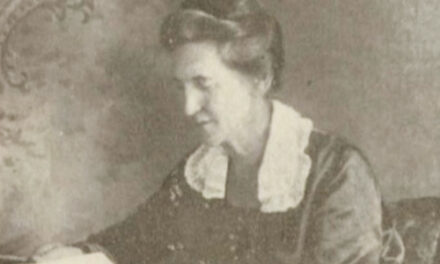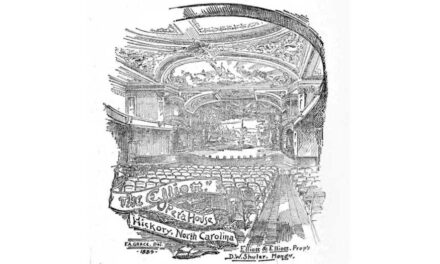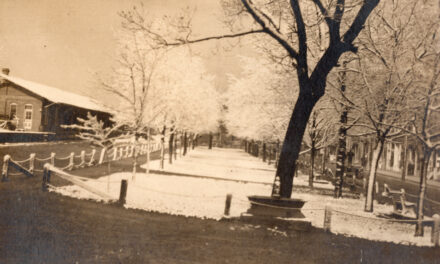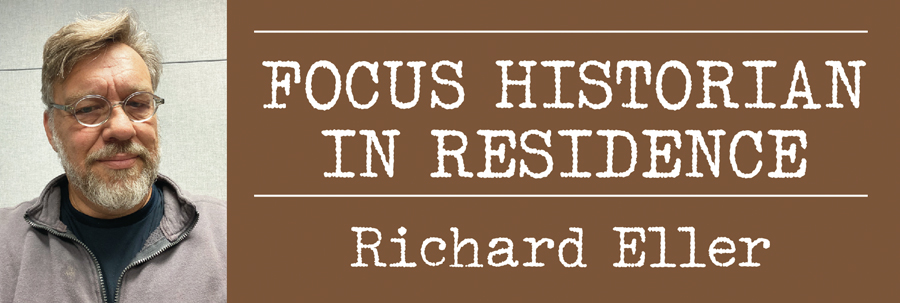
In her writings, Hickory poet Emma Ingold Bost, commented up numerous aspects of life in a 20th century that was just about as old as the 21st is to us now. She even got meta-cognitive in her work, writing about the effect of her words upon the reader. One poem read,
“If any story I can write, will make some burdened heart grow light,
Or cause some weary face to smile. That story is worth while.”
In The Changes of a Century, she imagines George Washington coming back to life in her time and being given a tour of the America of 1918, by his ‘daughter’ Columbia. He marvels at all the advances available in the era, a long way from when he last saw the United States in 1799. Things like flight, telephones, trains all astonished him, as might be expected. But one stanza, points out to the first president how lacking his time was to her’s. In it, she writes,
“If at a Suffragists (women’s right to vote) parade he ask ‘Why to such measures driven”?
“Her answer: ‘They but seek today the heritage you should have given’.”
Gutsy stuff for anyone to chide so revered a figure as Washington about the way he respected women. But she had even more to say on the subject. In her book, she devoted an entire poem to the day women get to cast their ballots for the first time, thanks to the passage of the 19th Amendment.
At Last – The Vote
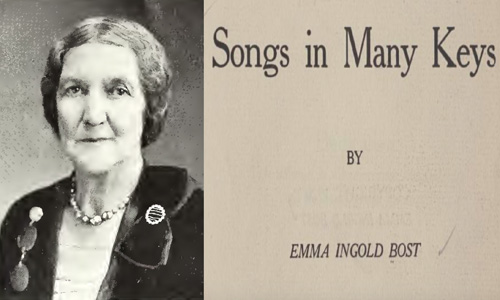
Photo: Emma Ingold Bost, age 82 and the title page of her landmark book, Songs in Many Keys.
Come Sarah, Maude, Elizabeth, Jane, Mary Kate and Sue –
Rose, Margaret, Annie, Amy, Belle, Gertrude, Helen, and Lou –
Come all!! In nineteen twenty, We’ll sound out a ringing note,
Though many years in coming, This year we get to vote!
For weeks we’ve been “instructed, By some well blessed with sense,
And some who only lately, Sat uncertain on the fence,
And some who had fought suffrage, Stood up, (and this is true),
To tell us ignorant women, Just what we ought to do.
But while we see the humor, And understand the play,
We’ll rise to the occasion, And meet the glorious day.
So come, my fellow citizens, A cheer from every throat –
The second of November, We go to cast our vote!”
In celebrating the accomplishment, Emma Ingold Bost did not hesitate to remind those “who have fought suffrage,” just like she did the first American president, that the day of keeping women down had finally passed. Some were just slow to recognize it. After publication, her work appeared in an anthology, The North American Book of Verse, a five-volume set. She died at the age of 82 in 1942, devoted to her family and church, while also advancing cultural life in Hickory.
The book, Songs in Many Keys served as a fountain, in its time and ours, showing us how effectively words can be put to use in order to change the world, starting with a single, solitary reader.


